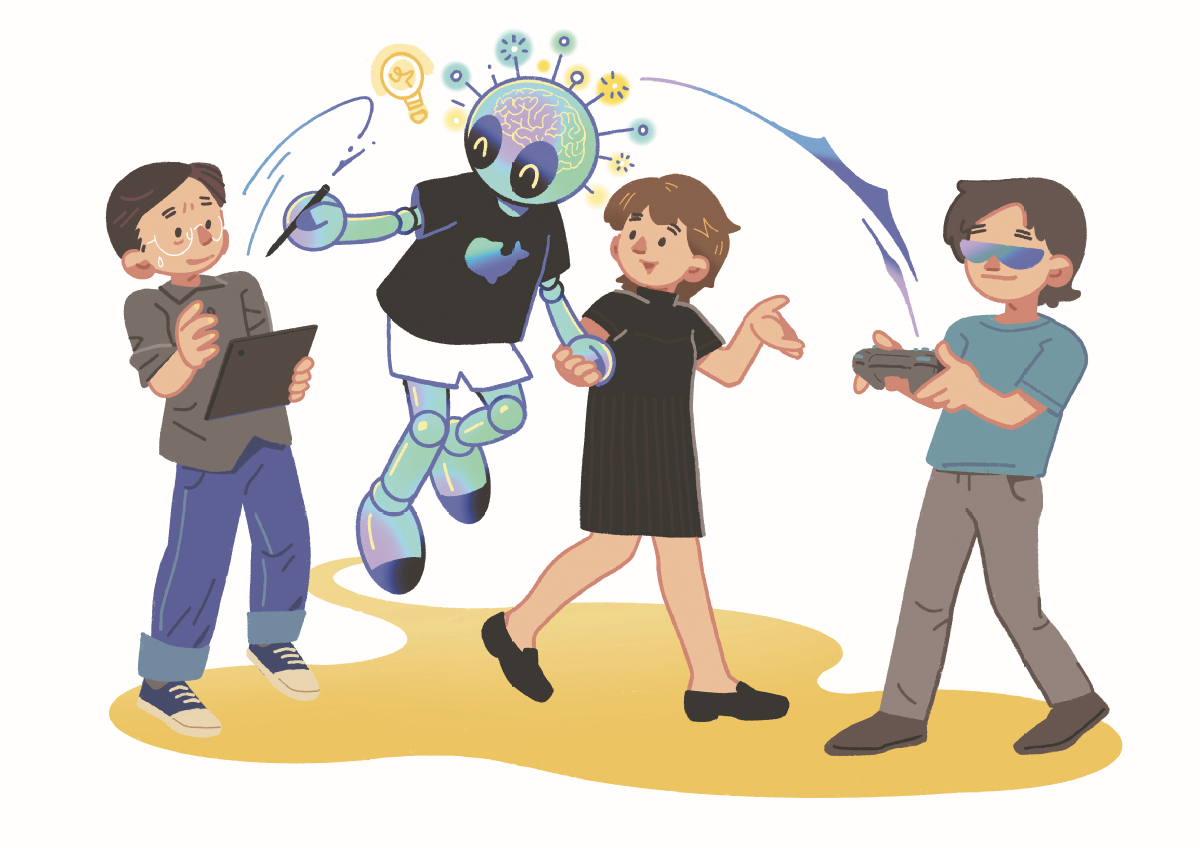AI impact to change future workforce
Nature of employment across various fields likely to be disrupted due to influence of technology


As artificial intelligence-generated anchors deliver broadcasts and large language models excel in simultaneous translation, the rapid advancement of AI continues to fuel uncertainty about its impact on the human workforce.
From ChatGPT-4o and DeepSeek R1 to a range of generative AI models tailored for specific tasks, these innovations are expected to replace an increasing number of jobs.
Some have dubbed this period "the eve of the AI era" to describe the current technological transformation. According to the Future of Jobs Report 2025 published by the World Economic Forum, over the next decade approximately 92 million jobs worldwide are projected to be disrupted due to technology, economy, demographics and the green transition.
Despite a net 78 million jobs being created in this same period, many people will be forced out of work, having to retrain and shift careers to match the global trends.
Clerical and secretarial roles are anticipated to experience the steepest decline.
Gong Yuqing, a junior financial analyst in Beijing, said AI has already changed her work.
"Approximately 30 percent of my current workload can be handled by AI models today," she said. "AI is not replacing us. Instead, it allows us to focus on more valuable tasks."
In her role, AI assists with routine tasks such as information collection and data entry, while she reviews and verifies the AI-generated output.
Gong primarily relies on Kimi, a chatbot developed by Chinese company Moonshot AI. Her daily responsibilities include summarizing and composing industry analysis reports. AI helps her convert graphics from original reports into data with high accuracy and facilitates content translation.
"Since I don't have to input this data manually, it saves a lot of time," Gong said.
AI has also become her go-to research tool. Recently, when tasked with gathering information on economic statistics, she asked Kimi to generate a reference list with source links.
"It is incredibly convenient to get what I need within seconds," she added.
Gong views AI as a collaborative partner in her work. "I am still the final gatekeeper," she stressed.
According to a report released by the China Internet Network Information Center in January, China had over 1.1 billion internet users last year, with 249 million using generative AI products. Of these users, 77.6 percent used AI to answer questions, while 45.5 percent employed AI models as office assistants.
Based on Gong's experience, for now, AI adoption in the workplace depends heavily on workers' willingness to explore its capabilities.
Sun, 25, who asked to be identified only by her surname, joined a top-tier accounting firm in Beijing last year. She is currently in charge of tax affairs.
As a newcomer whose academic background does not directly align with her current role, she initially relied on senior colleagues or extensive internet searches when faced with challenges.
"As someone unfamiliar with tax affairs, the process of searching used to be time-consuming and complicated," she said.
AI has since transformed her workflow.
"With AI's assistance, I can first understand the issue and receive a logically structured answer," Sun said. "It summarizes relevant tax laws and provides me with a solution framework."
When encountering unfamiliar terminology, she turns to AI for definitions and examples.
"I can even ask AI to elaborate on specific points, something traditional search engines can't do," she noted.
Nevertheless, Sun acknowledges AI's limitations.
"Some AI-generated information is inaccurate and requires further verification," she said.
She also observed that though AI's deep thinking process is thought-provoking, it often yields only a few useful insights.
"Experience matters in most situations. Senior staff can quickly identify key points, but for newcomers like me, it's harder to distinguish what is truly important," she said.
Beyond information retrieval, another significant feature of large language models is translation. Sun relies heavily on AI for this task.
"AI translation is especially helpful when I communicate with foreign clients via email," she said.
























